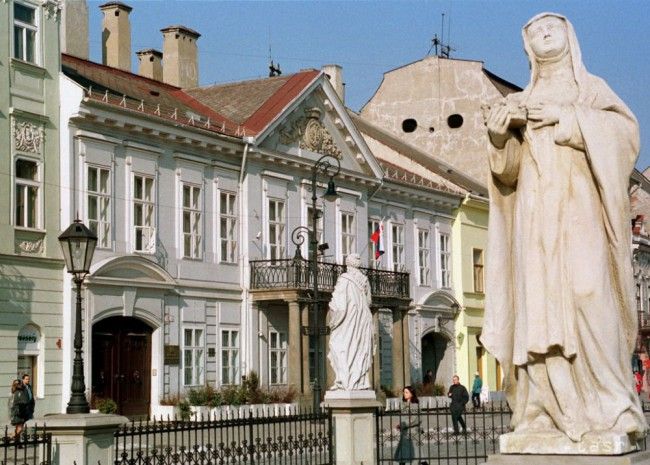Kiska: If Parliament Won't Propose New Judges, I'll Turn to Venice Commission

Bratislava, November 7 (TASR) – Slovak President Andrej Kiska after meeting Venice Commission President Gianni Buquicchio on Monday said that he will ask the commission for its legal opinion if Parliament won’t propose candidates for constitutional judges soon.
“I expect the Venice Commission to provide concrete answers on how to get Slovakia out of the situation it’s currently in,” reasoned Kiska, adding that although the commission’s conclusions aren’t binding, they might prove to be useful.
“I’m interested in eliminating all legal and political doubts and discrepancies that some decisions of the Constitutional Court have got us into,” stated Kiska.
“With all due respect for the Constitutional Court as an institution, this specific matter has made the court and its decisions part of the problem. It’s made decisions that some experts call legally arbitrary. The court had one chance to reply to my complaint with a single, legally clean and decisive solution – that is, to submit a binding interpretation of the constitution regarding the president’s appointment powers – in order to halt arbitrary attempts by senates to overwrite the constitution and make judgements that are beyond their powers. However, this suggestion has been refused by the Constitutional Court,” emphasised Kiska.
Kiska said that Parliament has had multiple opportunities to set things straight in these terms. “It has begun to be clear that there isn’t a general consensus in the governing coalition and I don’t even see any willingness to implement a manifesto towards this matter any time soon,” added Kiska.
Parliament submitted the names of five candidates in July – Eva Fulcova, Juraj Sopoliga, Miroslav Duris, Jana Lassakova and Mojmir Mamojka. However, Kiska decided not to pick any of them and so left the three posts unoccupied.
Kiska claimed back then that the requirements for Constitutional Court judges highly exceed the regular requirements that apply to ordinary courts in terms of expertise and acceptance in society. “These requirements cannot be met by applicants who, prior to securing their nomination, have never, for instance, displayed any interest in constitutional law, the protection of constitutionality or fundamental rights and freedoms – either in their professional careers or in an academic environment,” said Kiska.
At the moment the Constitutional Court isn’t fully staffed, as its 13-member senate still lacks three judges. In 2014, Kiska rejected five out of six candidates greenlighted by Parliament for three Constitutional Court judge vacancies. He appointed judge Jana Baricova to the prestigious judicial post, but turned down the remaining five candidates on the grounds that he didn’t find sufficient interest among them in constitutional law, even though the quintet met the legal requirements.
Another post became vacant in February, when judge Lubomir Dobrik’s term in office expired.
The Venice Commission is an advisory body of the Council of Europe, composed of independent experts in the field of constitutional law. Its primary task is to assist and advise individual countries in constitutional matters in order to improve the functioning of democratic institutions and the protection of human rights.



